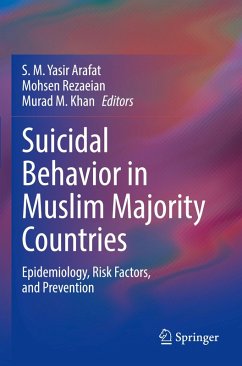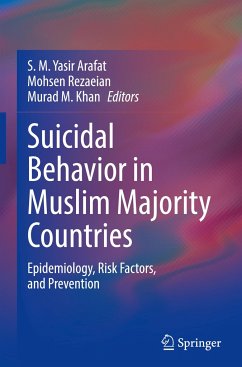
Positive Psychology in the Middle East/North Africa
Research, Policy, and Practise
Herausgegeben: Lambert, Louise; Pasha-Zaidi, Nausheen

PAYBACK Punkte
20 °P sammeln!
This volume looks at positive psychology from a culturally-responsive, empirically-driven perspective to avoid a descent into pseudoscience. Through evidence-based, regionally relevant topics in the field of well-being, this volume shows how increasing levels of excellence in the GCC region enhance upon business, education, research, and social innovations. Grounded in the empirical research literature, each chapter applies psychological concepts to locally relevant considerations, such as culture, religion, and socio-political contexts, making this book an essential tool for understanding pos...
This volume looks at positive psychology from a culturally-responsive, empirically-driven perspective to avoid a descent into pseudoscience. Through evidence-based, regionally relevant topics in the field of well-being, this volume shows how increasing levels of excellence in the GCC region enhance upon business, education, research, and social innovations. Grounded in the empirical research literature, each chapter applies psychological concepts to locally relevant considerations, such as culture, religion, and socio-political contexts, making this book an essential tool for understanding positive psychology and well-being in the GCC nations and beyond.












